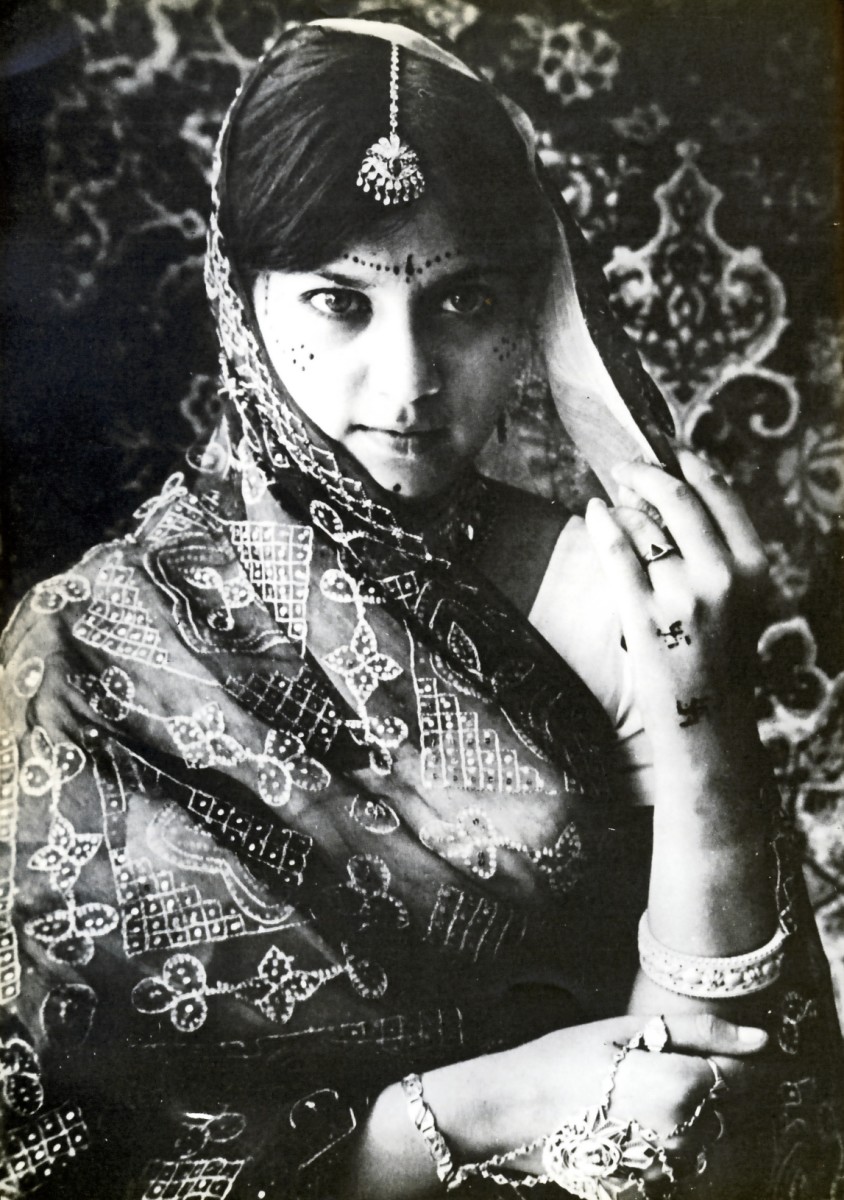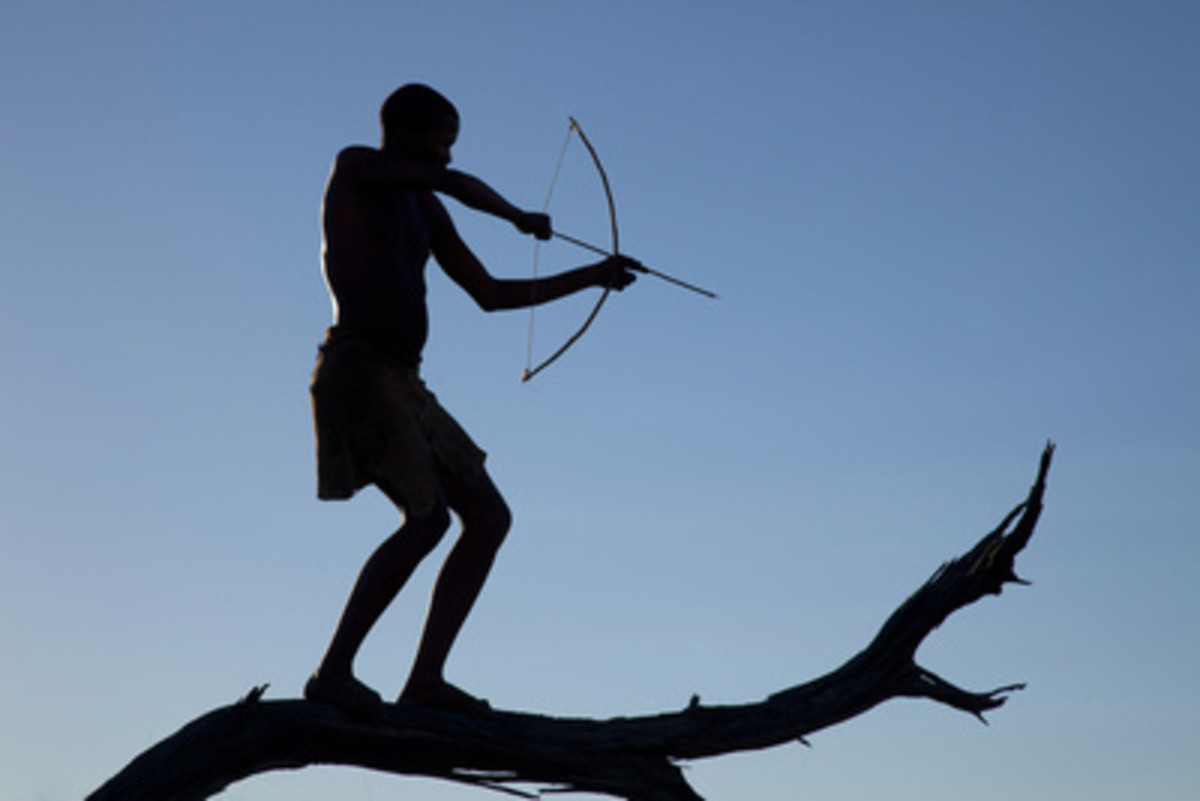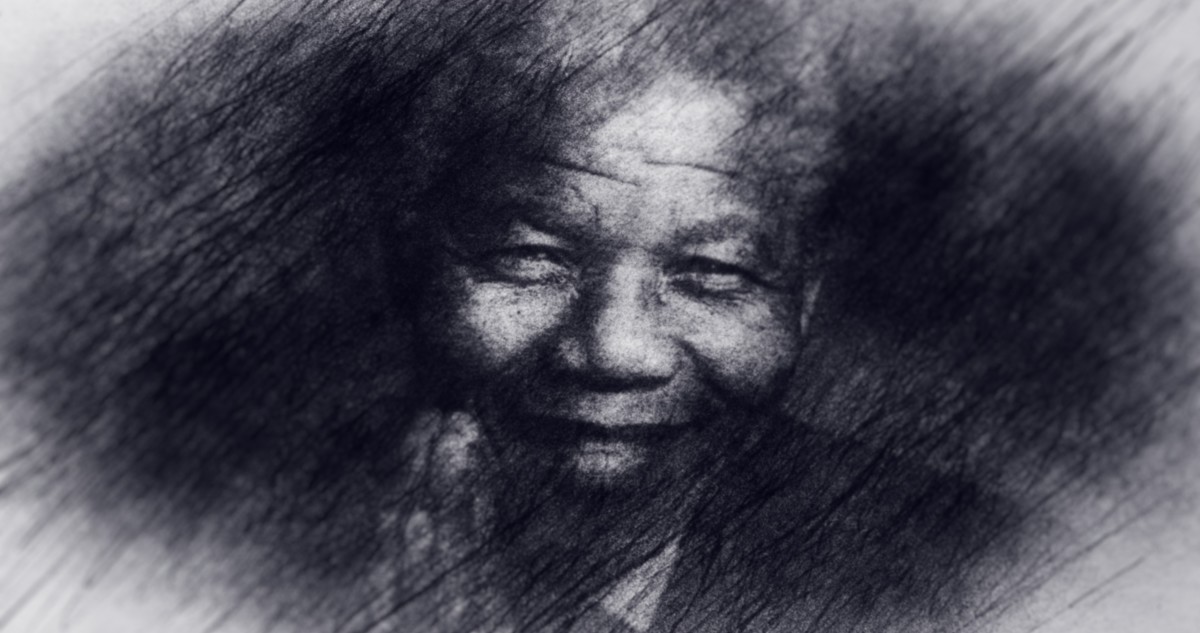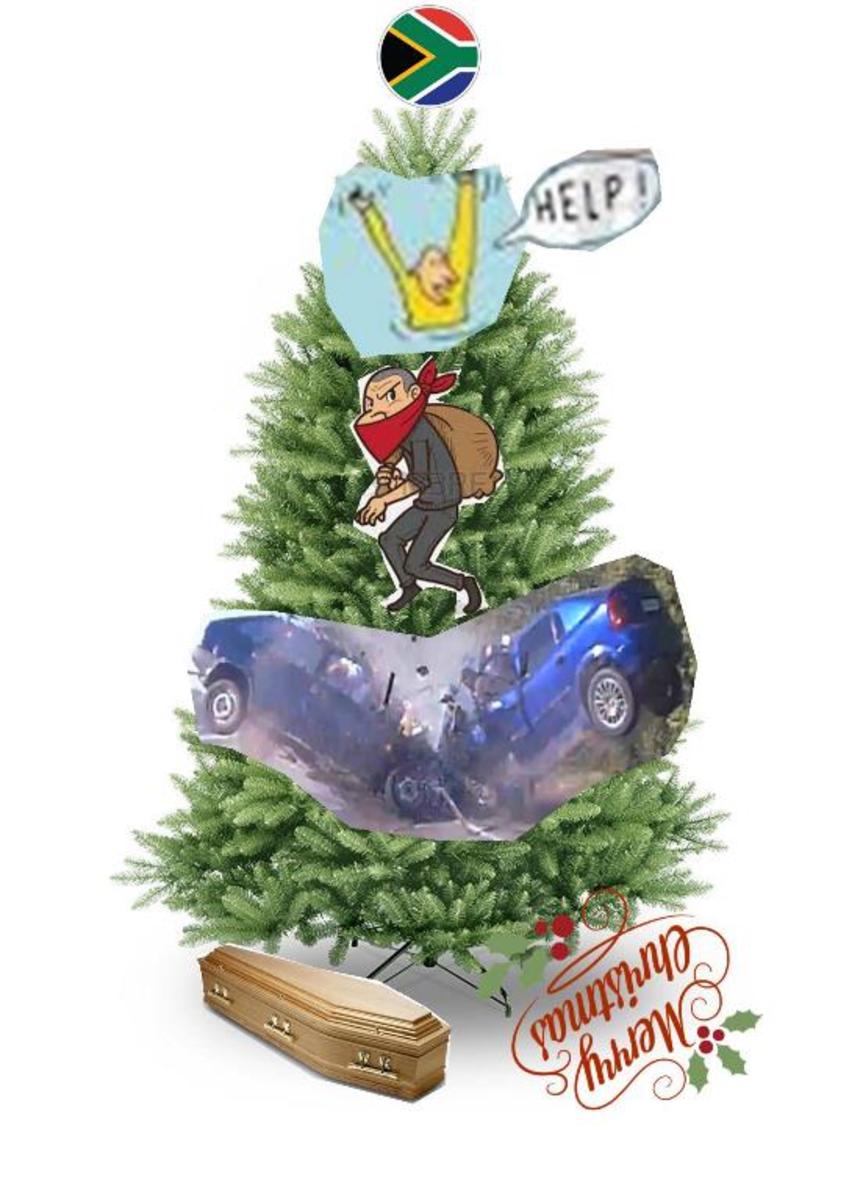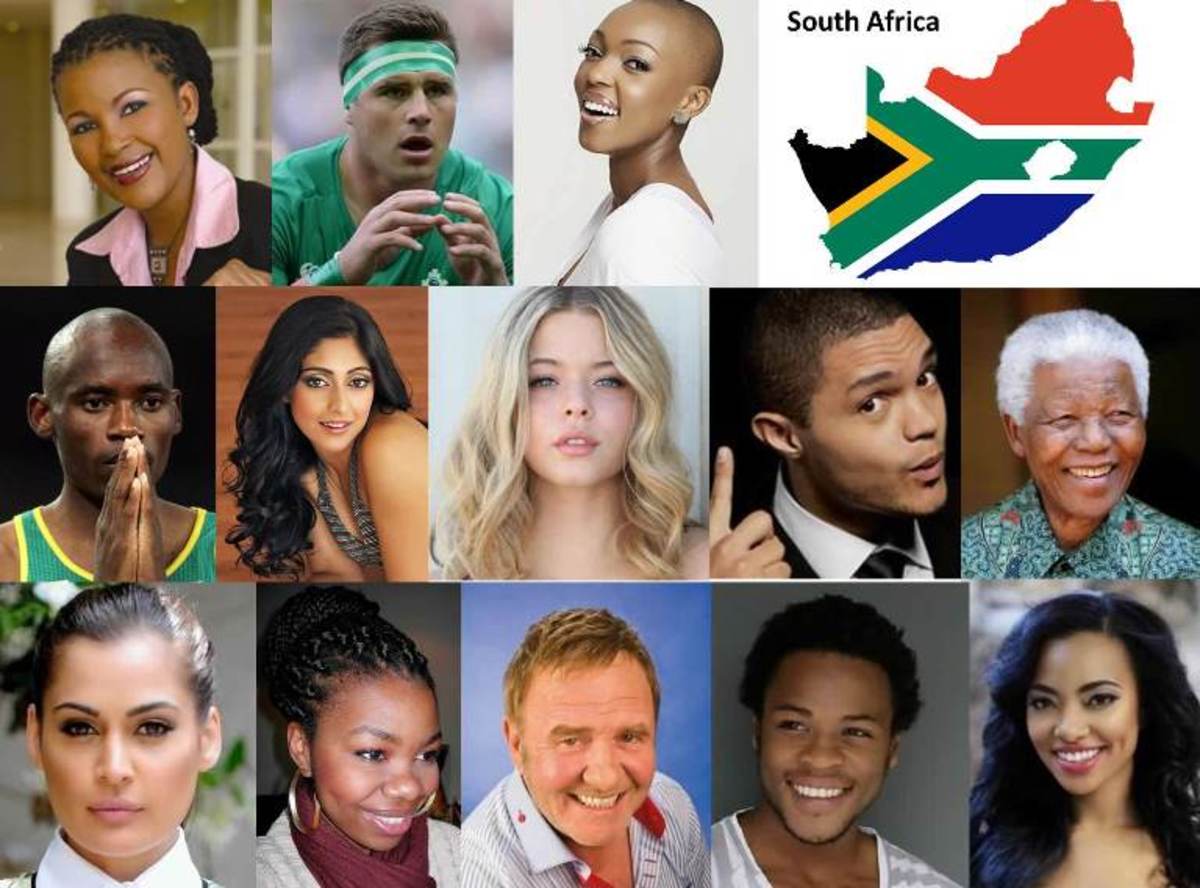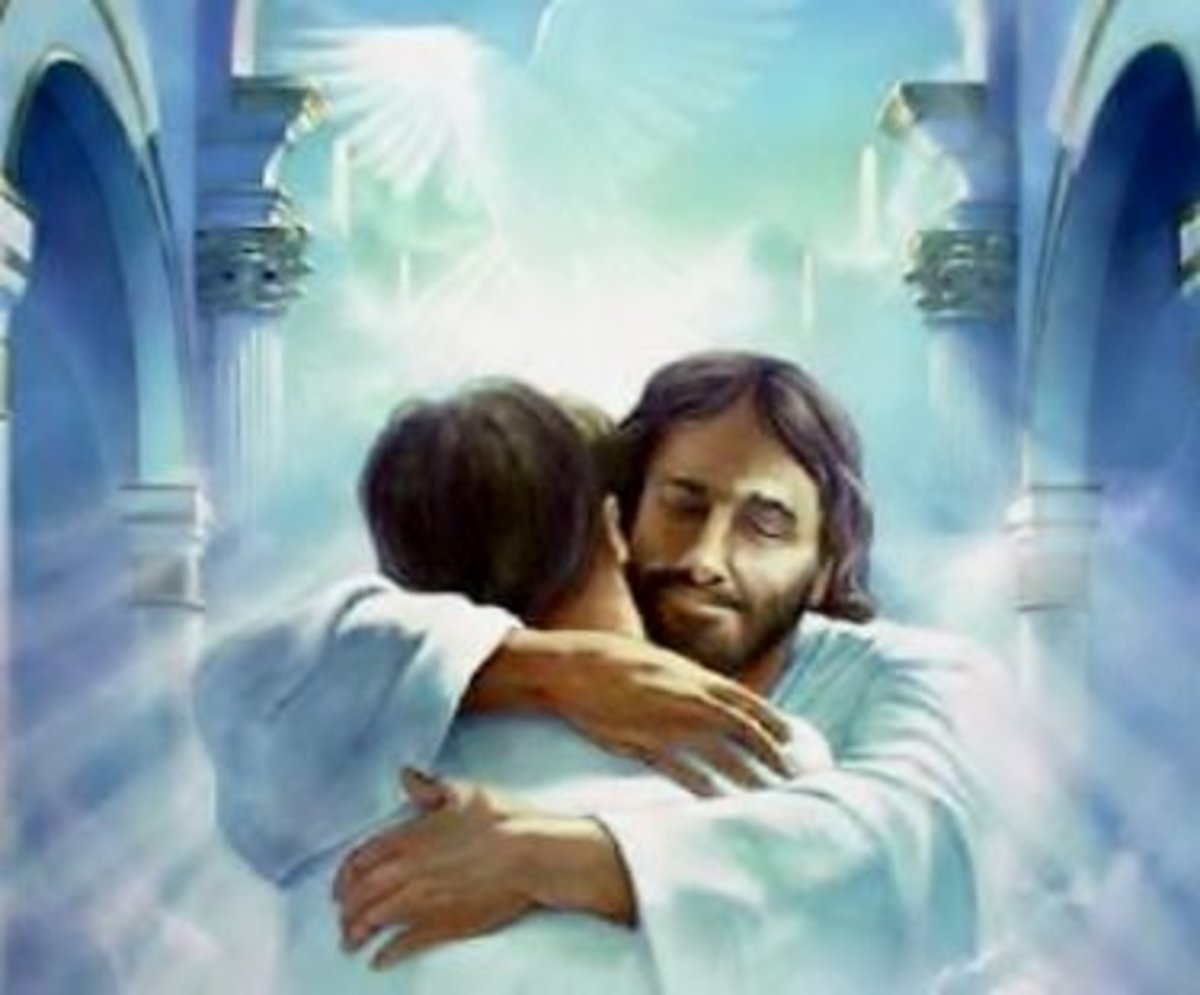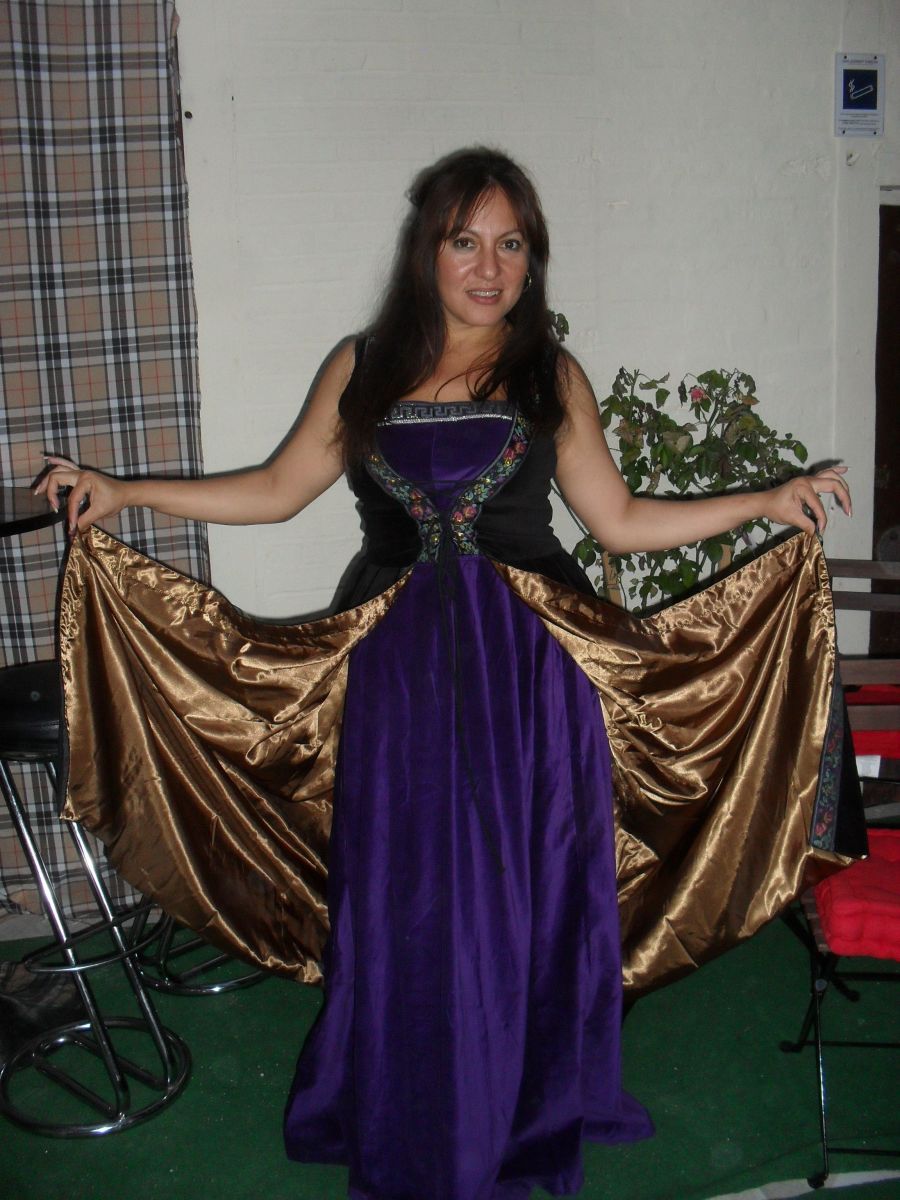Public holidays in South Africa - Heritage Day – 24 September
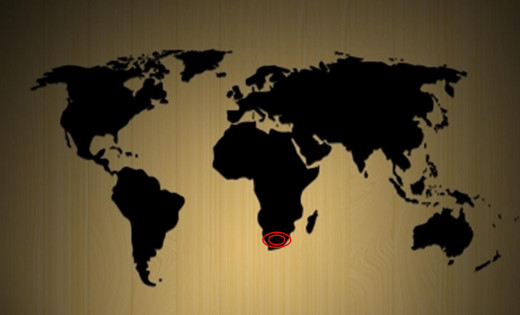
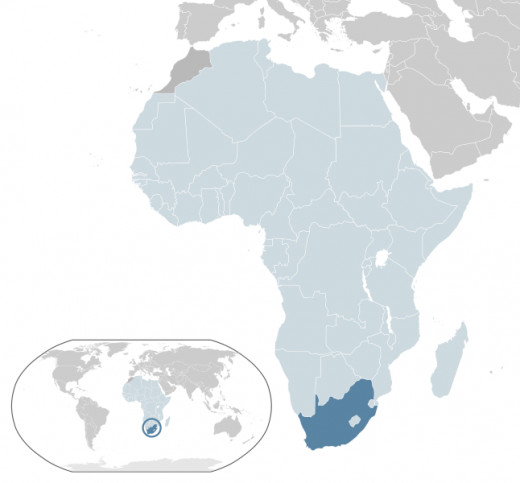
South Africa, The Rainbow Nation
South Africa is known as the Rainbow Nation because it is the homeland of many cultures.
What to do on a public holiday called Heritage Day when each of these many cultures has their own set of bad and good memories and current issues?
Those who are labelled as terrorist by one culture are the heroes of another culture. Those who were sentenced to jail by one culture, were/are or could become the government of another culture.
According to the census conducted in 2011 the citizens of South Africa are categorized into the following groups –
- 79,2% Blacks (± 41 million)
- 8,9% Whites (± 4,5 million)
- 8,9% Coloureds (± 4,5 million)
- 2.5% Indians/Asians (± 1,2 million)
- 0,5% Others (± 280 thousand)
EACH AND EVERY ONE OF THESE GROUPS COMPRISES MANY ETHNIC GROUPS!
Each of them with their own language or dialect, their own mythical belief system and religion, own traditional rituals, traditional clothing, their own heroes and martyrs and grievances due to never-ending wars and disputes in the past. They have their own system of justice and tribal authorities, although since Westernisation subordinated to laws imposed by the national government.
Today the people in South-Africans are supposed to be ONE nation, a Rainbow Nation. Apartheid and oppression are no longer allowed, yet against all odds they are still separated via social categories such as White, Black, Coloured, Asian and Very-rich, Rich, Middle-class, Poor and Very-Poor.
Although English is the home-language of the minority, English is the country’s official language-medium. The majority, I would dare to say 99% of all educated people, can speak, read and write English as well as their mother-tongue. Many of them have also mastered a third, fourth and even fifth language.
A summary of ethnic and cultural diversity in South-Africa –
This is but only a summary of fragmented content that will fill an entire encyclopaedia. But I do believe that this will give a reader half an idea of the complex population of South Africa.
A (khoi) San tribesman
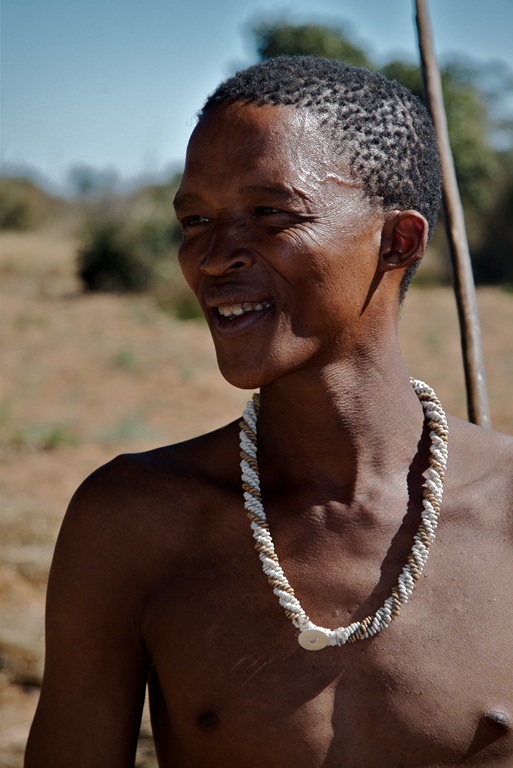
The Khoisan People, comprises the Khoi- and the San people -
The Khoisan People, comprises the Khoi- and the San people was the original inhabitants of Southern Africa and descendants of the prehistoric Sangoan people. Being hunter-gatherers the Khoi and San people were also mobile races with no desire to own a specific region. Due to intermarriages and also because they instinctively prefer to live in regions with an annual rainfall of less than 40 inches, and because Westernisation is the very last of their desire, small tribes are still living in parts of the Kalahari Desert.
However, due to intermarriages thousands, if not millions, of their descendants are today very much alive in South Africa, but thoroughly integrated in another racial group.
Interesting:
“Genetic studies suggested that the San people may have been one of the first populations to differentiate from the most recent common paternal ancestor of all extant humans.” (Ref: http://en.wikipedia.org/wiki/Khoisan)
A caricature of Saartjie Baartman
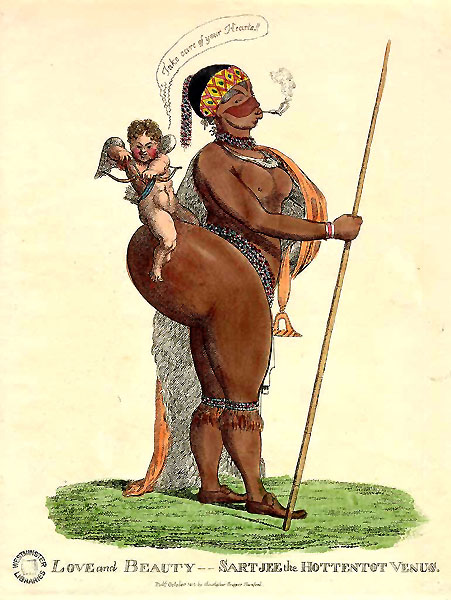
Famous personalities of the Khoi-San People -
Chief David Stuurman and Jantjie Piet, who had been activist against colonialism in 1808/9.
Saartjie Baartman – the so-called “Hottentot Venus”, who were exhibited in freak-shows in Europe.
Willem Uithalder, the leader of a rebel group against colonialism (1851).
(Read more about them at -
http://en.wikipedia.org/wiki/Sarah_Baartman)
Page 159 in http://repository.up.ac.za/bitstream/handle/2263/12783/005_p150-199.pdf?sequence=3)
The Nguni People –
The Nguni people are originally from Central and East Africa. According to historians their settlements in the eastern part of SA that boarders the Indian Ocean emerged between 300 and 500 A.D.
This Negroid racial group comprises the Swazi-, Zulu-, Ndebele- in the northern half, and the Xhosa-, Thembu-, Bomvana-, Mpondo- (a sub-group of the Xhosa), Fengu-, Bhaca- and Mpondomise- people in the Southern half. The Zulu and Xhosa were the most dominant people of the Ngundi race. Until today they are not madly in love with each other. The Zulu language is the most common home language in S.A. The second most common is iXhosa.
Famous Kings and other Leaders of the Nguni People –
(I mention only a few just to emphasize the dilemma regarding the heritage of South Africa.)
NB: ‘King’ is a Western word; a better description of the word ‘king’ in the Nguni group is ‘Chief’ or ‘Lord’. The Nguni word was/is inkosi.
Zulu: King Senzangakhona (the father of Shaka), King Shaka Zulu, who had killed the heir to the throne with a spear), King Dingane (the half-brother and assassinator of King Shaka [1828]), etc.
Bhaca: King Madzikane, who had managed to unite many different people and tribes, Crown prince Sonyangwe (burnt to death in his hut by traitors), King Ncapayi (killed in 1845 during a battle with the Mpondo people,) King Mdutyane, King Diko, King Mhlontlo, etc.
Thembu: King Ngubengcuka, and the most famous, our previous president, Nelson Mandela and the freedom fighter, Walter Sisulu.
Mpondo: King Faku (1815-1867),
Ndebele: Their former, Chief Musi, Chief Nyabela and his successor, Cornelius.
Swazi: The original Chief Dlamini and all his successors. Sobhuza I, Mswati II, Mbandzeni, etc.
Xhosa: Their legendary first king, uXhosa, and other legendary chiefs, the well-known Desmond Tutu, first black South African Archbishop of Cape Town.
* ALL OF THESE PEOPLE AND MANY-MANY MORE MADE SIGNIFICANT CONTRIBUTIONS TO THE HERITAGE OF SOUTH-AFRICA.
Nelson Mandela
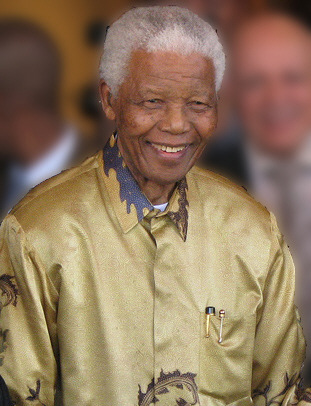
The Sotho-Tswana people –
The Sotho-Tswana people are originally from the Katanga area (see Republic of The Congo) in Central Africa. They migrated to the south some time between 200-500 A.D. along the central and western part of Africa. This race comprises the Batswana (Western-Sotho), the Basotho (Southern-Sotho) the Bapedi (Northern-Sotho). Not only their language, but a number of cultural differences distinguish them from other races in South Africa. According to historians their common ancestor was a chief named Mogale. They all speak Setswana or a dialect of this language.
Interesting about this race: They did not easily choose war to achieve their goals or to solve any disputes. Discontented members of a clan would simply break away to form a new clan under the leadership of a discontented relative of an existing chief. But they quickly united and centralised to protect themselves and their belongings against the aggressive Zulu warriors and the white settlers who had invaded their regions during the second half of the 18th century.
- Recommended read about the Difacane - a period of chaos and warfare caused by King Shaka of the Zulus (1815-1840) – http://en.wikipedia.org/wiki/Difaqane
- Recommended read about the three Basotho wars (between the white setllers and the Basotho’s) http://www.sahistory.org.za/south-africa-1806-1899/basotho-wars-1858-1868
NB: Thousands of British soldiers had died during their wars and revolts with the Zulus and Xhosas – Ref:
Famous leaders of the Sotho-Tswana people –
Their leaders were called chiefs – one for each clan. Their ultimate authority was called 'Kgosi' (Lord).
(‘King’ is a Western word; a better description of the word ‘king’ in the Sotho-Tswana group is ‘Chief’ or ‘Lord’. The Sotho/Tswana words were/are ‘morena’, ‘kgosana’, ‘kgosi’, ‘dikgosi’.)
Basotho: King Moshoeshoe, the founder of Basotholand, today known as Lesotho.
Bapedi: King Sekwati, King Sekhukhune, (1814–1882), etc.
Tswana: Chief Morolong and his successors, and Sol Plaatje (1876 – 1932) – an intellectual, journalist, linguist, politician, translator and writer -
ALL OF THESE PEOPLE AND MANY-MANY MORE MADE SIGNIFICANT CONTRIBUTIONS TO THE HERITAGE OF SOUTH-AFRICA.
Sol Plaatje
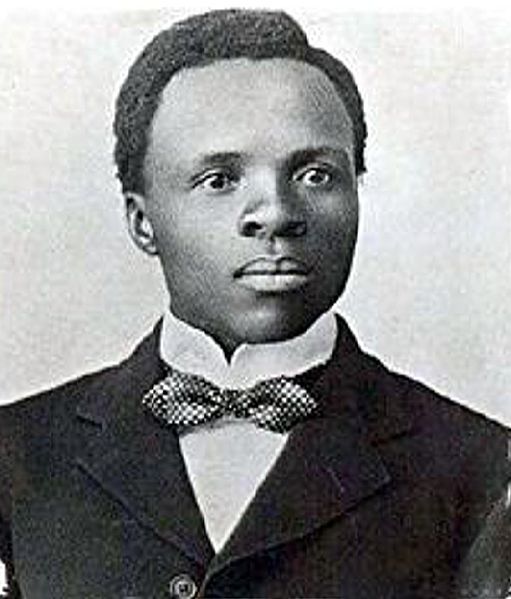
Tsonga people (The Shangaans)
The Tsonga people are originally from North-Central Africa, comprising inter alia the Shangaan-, the Thonga- , the Tonga- and many smaller groups. They are a minority in South-Africa, but a majority in other Africa countries south of the equator. (Mozambique, Zimbabwe, Zambia, Malawi.) Read more about the Tsonga people here and here.
The Venda People -
This unique people are descendants from many clans originally from Central Africa and in particularly from the Congo. Read more about them here.
Desmond Mpilo Tutu
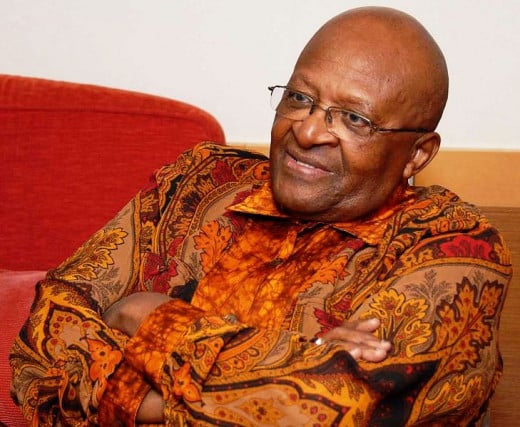
European-South Africans
European-South Africans, called Whites, are originally from European counties such as the Netherlands, Germany, France, Britain, Portugal, Italy and Greece, including thousands of Jews. Today the majority Whites (about 60%) speaks Afrikaans, a unique ‘dialect’ of Dutch enriched with words borrowed from other languages. The majority of the rest have English as their home-language while the others, such as the Portuguese, Italians and Greeks still speak the language of their original country.
According to wikipedia 4,602,386 Whites are currently living in South Africa, allegedly oppressed since the demolishing of Apartheid in 1994. (See some statistics of hate crime that may be classified as Genocide (the systematic killing of people on the basis of ethnicity, religion, political opinion, social status) at The-truth-about-south-africa.
Some famous leaders and pioneers of Europeans-South Africans
Jan van Riebeeck (1652), the first white (Dutch) colonial administrator and founder of Cape Town.
The Voortrekker leaders (1836): Louis Tregardt, Hendrik Potgieter, Sarel Cilliers, Pieter Uys, Gerrit Maritz, Piet Retief and Andries Pretorius.
Marthinus Wessel Pretorius, the first president of the Zuid-Afrikaansche Republiek (ZAR) (1856 to 1900, interrupted by British rule from 1877 – 1881 and finally ended by British rule in 1901).
BTW, a great-grandfather of mine, Philippus Jeremia Coetser (named Kaleshaan by the blacks), was a member of this parliament for 36 years and in particularly involved with ‘Bantu Affairs’. (Those days blacks were called Bantus.)
Paul Kruger, President of (ZAR) from 1883 to the outbreak of the Second Anglo-Boer War on 11 October 1899. Kruger died in exile from heart failure on 14 July 1904 in Clarens, Switserland.
Louis Botha, the first Prime Minister of the Union of South Africa. This union came into being on 31 May 1910, when the then four British colonies in South-Africa became one dominion (unitary state) of the British Empire.
Charles Robert Swart, the first State President of the Republic of South Africa. (On 31 May 1961, after 50 years’ of British domination, SA was finally allowed to become an independent country.)
Frederik Willem de Klerk – the 7th and last State President of the Apartheids-era (1961-1994) in South Africa. De Klerk and Nelson Mandela were jointly awarded the Nobel Peace Prize in 1993. .
Cecil John Rhodes (1853-1902). Industrial and economical development until 1961, and especially between 1860 and 1910 in South Africa was mainly due to the domination of the British Empire and British entrepreneurs. Cecil John Rhodes, Prime Minister of the Cape Province (1890- 1895) was the co-founder of the De Beers (diamond) Mining Company April (1880) . He was also the founder of the southern African territory of Rhodesia,
Alfred Milner, 1st Viscount Milner, British High Commissioner and Governor of the Cape Colony (1897- Although his actions caused intense hardship among Afrikaans-speaking whites and all other groups, he was a key-figure in the reconstruction of the country after the Second_Boer_War and the development of gold mining in South Africa. He was considered to be one of the best officials in the British government of S.A.
Charles Robert Swart
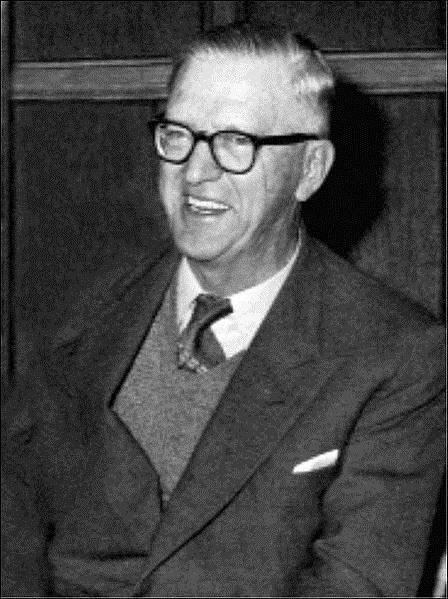
F.W. de Klerk
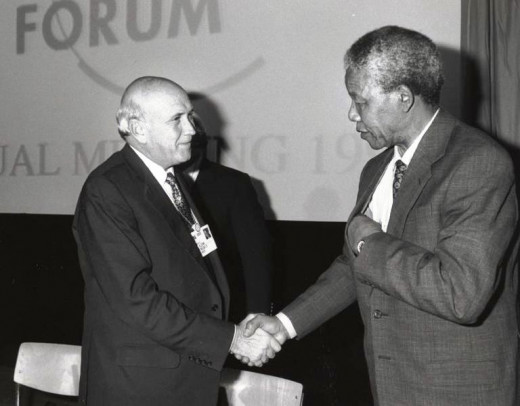
The Coloured People -
The Coloured People, also known as the Brown People (opposed to Black, White, Indian and Asian)
This group was originally the Cape Malay - slaves mainly from Indonesia, imported or brought along by white Europeans (1652+).
Interracial affairs between the white settlers and their slaves, as well as interracial affairs between the whites and the Khoi-San people, led to the formation of the group we know today as “The Coloureds” or the “Brown People”.
(The freedom of having inter-racial relationships was only inhibited during the Apartheids-Era.)
This group comprises many unofficial sub-groups, each with their own unique features. The following interracial affairs were not uncommon between -
- The white settlers and the Khoi-San people in the Cape Province. The consequences of this was the formation of a new, unique group called the Cape-Coloureds.
- White farmers (Trekboere) and Khoi-San people in the Northern Cape. The consequences of this was the formation of a new, unique group called The Griqua_people.
- British settlers/soldiers and Zulu's and/or Indians in Natal.
- Whites and Blacks all over the country.
Afrikaans (or remarkable dialect of Afrikaans) is the home-language of 90% of the Coloured people.
Great achievers among the Coloureds –
Trevor Manuel, former South African Finance Minister.
Adam Small, poet, writer, political activist
Patricia de Lille, curently Mayor of Cape Town
Coloureds
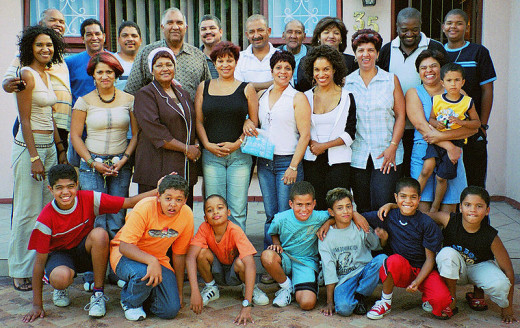
Asians in South Africa
This group comprises the Indians, Chinese and other people from Asia.
During the 19th Century the Indians were ‘imported’ by the British to work in the sugar plantations of the Colony of Natal, previously the Kingdom of the Zulu People and today known as KwaZulu Natal. The Chinese were imported to work in the Gold Mines of Johannesburg.
The most famous lawyer and non-violent activist against racial discrimination and British oppression, Mahatma Gandhi (1869-1948), managed in 1914 to obtain lasting civil rights for the Indians in South Africa. Thereafter the Indians had distinguished themselves as successful retailers all over the country.
Today also the Chinese People seem to flourish as retailers, restaurant owners and technicians.
Mohandas K. Gandhi
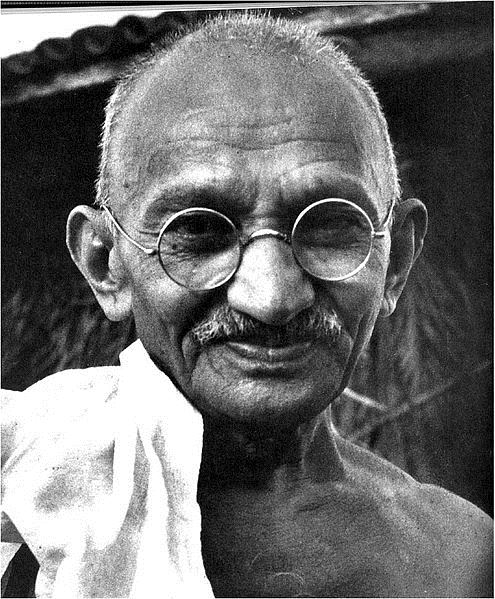
Illegal Immigrants -
At least 5-8 million illegal immigrants from Pakistan, Malawi, Mozambique, Zimbabwe and other Africa countries sporadically results in xenophobic attacks. More attacks are predicted by the Lawyers for Human Rights.
The ANC-government’s horrendous denial of this threat, as well as their denial of the systematic killing of whites by blacks (genocide!), may hopefully come to an end soon.
Conclusion
Keeping all of this fragmented detail in mind, a media-campaign inspired the successful re-branding of Heritage Day as National Braai Day, or more correctly, Braai4Heritage Day, under the peaceful patronage of Emeritus Archbishop Desmond Tutu.
Unfortunately many citizens of the country now feel offended and bereaved of their right to honour the heroes of their own culture.
© Martie Coetser

But, I say, let us braai and celebrate because we are still alive ‘down here’ and able to appreciate the fresh air that we breathe, the most beautiful sunrises and sunsets, exquisite fauna and flora and the love and support of our relatives and friends.

Recommended Hubs to read about culture in South Africa
- Braai4Heritage; a common celebration of South Africa's heritage
"Just South Africans doing one thing together, and recognising that we are a fantastic nation." Desmond Tutu on the braai on South African Heritage Day

